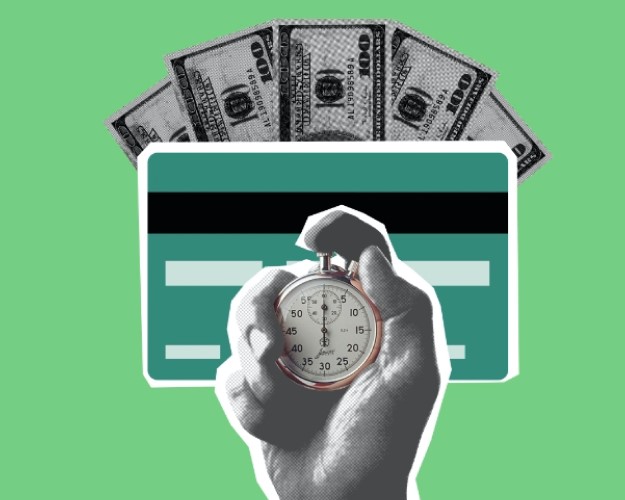The best time to consider getting a business loan is well before you need it. Here are some factors to consider before you apply for a business loan.

When is the Best Time to Obtain a Business Loan?
Most small businesses on a growth trajectory reach a critical juncture when they need an injection of capital to stabilize operations, take advantage of new opportunities, or create more cash flow flexibility. If outside investors are not available or desired, the most reliable source of capital is a business loan. But for many small businesses, the critical question is not why they need a business loan but when the best time is to pursue one.
Getting a business loan at the wrong time can work against a business’s growth plans. In addition to jeopardizing its finances by taking on more debt than it can handle, it can hurt its credit, making it difficult to secure future financing at a reasonable cost.
The best time to obtain a business loan can vary depending on specific circumstances and needs. Before exposing their business to possible financial risks, small business owners should consider thoroughly evaluating their business needs in light of several key factors that can influence the timing of obtaining a business loan.
Financial Condition
A business that hopes to grow through financing must first determine if it has the capacity to carry debt over the term of a loan, with realistic expectations of paying it off. Several vital metrics can tell you and a lender if you have that capacity, including:
Debt service coverage ratio (DSCR): Your DSCR measures whether your business can afford a loan. It measures how much cash your business has to pay current debt obligations. A score below one means you don’t have enough cash to pay your debt in full.
Trailing 12-month sales and revenue: Are your sales and revenue numbers stable as compared to the past 12 months?
12-month sales forecast: Will projected sales and revenues be sufficient to generate enough cash flow to make debt payments on top of operational expenses?
Cash flow forecast: Based on current and forecasted numbers, will the business have enough flexibility and consistency with its cash flow?
Credit score: Is your and your business’s credit score sufficient to secure favorable loan terms?
Long-term Goals vs. Operational Needs
Obtaining financing to expand operations or capitalize on a growth opportunity may look like a good idea on paper. However, if your business doesn’t have the resources to manage that growth, it could have the opposite effect. A well-conceived business plan (a must-have requirement for lenders) should map out in detail how the loan proceeds will be used and how your business expects to manage the growth.
For example, what resources, including additional staff and equipment, will be necessary to absorb the increased workload? Is the right management structure in place to manage the growth? Clearly understanding your operational needs as you move forward with your growth plans is essential to optimizing the value of bank financing.
Economic Conditions
You also must consider whether taking on debt in the current economic environment makes sense. The economy has an impact on the availability and cost of business loans. During times of economic uncertainty, lenders may tighten their lending standards or offer loans at higher interest rates. However, if the benefit to your bottom line outweighs the higher interest costs, it can still be a good time to borrow.
When is the Worst Time to Borrow?
It will take a clear understanding of these factors to determine the right time to borrow based on your specific circumstances. But there is an absolute worst time to borrow for any business: when they urgently need capital. In business, the best time to borrow money is well before you need it, with a strategic plan in place and the time to ensure the conditions are right.
To have the best chance of securing favorable loan terms from a reputable lender, it’s essential to have a clear understanding of your business needs, do your research, compare loan options, and have a solid plan for using the funds before applying for a loan.
Recent articles:

Using Generative AI for Content Creation and Marketing in 2026 - Generative AI helps small businesses save time, cut costs, and compete with larger brands-when paired with human creativity and storytelling.

Navigating Potential Tariffs and Global Supply Chain Changes in 2026 - In 2026, small businesses can offset tariffs by assessing risk, diversifying suppliers, managing costs, and building resilience to stay competitive.

Why Small Businesses Should Resolve to Build an Emergency Fund in 2026 - In uncertain times, an emergency fund gives small businesses stability, confidence, and the power to grow without fear of sudden setbacks.

Managing Debt Effectively for Small Business Owners: A 2026 Guide - Debt doesn’t have to hold your business back. With clear insight, smart repayment, and proactive planning, you can turn borrowing into a growth tool—not a burden.

Building Strategic Partnerships for Small Business Success - Strategic partnerships amplify reach, reduce risk, and accelerate growth—proving small businesses go further, faster when they build together.

Embracing Micro-Influencer Marketing for Small Businesses - Micro-influencers give small businesses authentic reach, higher engagement, and real sales—proving that trust, not size, drives modern marketing.
Previous Articles:
- Using Data Analytics to Drive Small Business Decisions
- The Rise of Hybrid Work Models for Small Businesses
- Financial Planning for Seasonal Businesses
- Adapting to Changing Consumer Behaviors in 2025: Essential Steps for Small Businesses
- Crafting a Realistic Cash Flow Forecast for 2025: A Guide for Small Businesses
- Elevate Your Business with Flexible Payment Options for Customers
- Understanding and Optimizing Your Business Credit Score
- The ROI of Automation: Affordable Tech Solutions for Small Business Growth
- High-Impact, Low-Cost Marketing Ideas for Small Businesses
- The Small Business Owner’s Guide to Managing Stress and Avoiding Burnout
- With Credit Tightening, How Small Businesses Can Build a Strong Financial Profile
- Post-COVID Trends That Small Businesses Can’t Afford to Ignore
- Standing Out in a Saturated Market: Tips for Small Business Differentiation
- Tightening the Belt: 10 Cost-Cutting Strategies for Small Businesses Facing Rising Expenses
- Five Steps Small Businesses Can Take to Increase Web Traffic
- Retention 101: Keeping Your Best Employees in a Competitive Market
- Creative Ways to Overcome Labor Shortages in Your Industry
